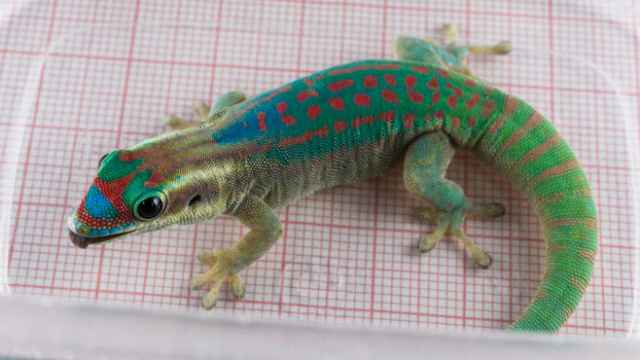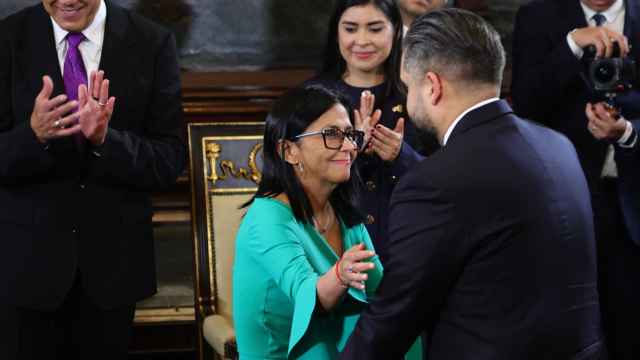Russian experts have failed to determine what killed five geckos sent into space as part of an experiment to monitor the effects of zero-gravity on their reproductive systems.
"It's hard to say why they died … [We have] no reasonable ideas at all" Vladimir Sychev, who oversaw the space-gecko program, was quoted as saying by the Interfax news agency.
According to Sychev, experts were not even able to establish when the lizards died: The only piece of equipment to malfunction during the lizards trip into space was a surveillance camera — but without this footage, experts were only able to narrow down the time of their death to a period of a few weeks.
However, the fact that a control group of geckos on Earth survived means that scientists could rule out several factors — such as temperature, humidity or air quality — as being the cause of their deaths, said Sychev.
"I must have been some factor specific to space," said Sychev, who works at the Russian Academy of Sciences' Institute for Medical-Biological Problems
"It could have been zero gravity, it could have been the radiation factor or stress. It could have been anything," he was quoted as saying by Interfax.
The four female geckos and one male gecko were launched into space on July 19 onboard a Foton-M4 satellite launched from Kazakhstan's Baikonur Cosmodrome. Also making the 44-day trip alongsIde the geckos were a swarm of flies and some plant seeds and microorganisms.
While the flies survived and reproduced, the geckos were pronounced dead upon landing on Sept. 1.
A Message from The Moscow Times:
Dear readers,
We are facing unprecedented challenges. Russia's Prosecutor General's Office has designated The Moscow Times as an "undesirable" organization, criminalizing our work and putting our staff at risk of prosecution. This follows our earlier unjust labeling as a "foreign agent."
These actions are direct attempts to silence independent journalism in Russia. The authorities claim our work "discredits the decisions of the Russian leadership." We see things differently: we strive to provide accurate, unbiased reporting on Russia.
We, the journalists of The Moscow Times, refuse to be silenced. But to continue our work, we need your help.
Your support, no matter how small, makes a world of difference. If you can, please support us monthly starting from just $2. It's quick to set up, and every contribution makes a significant impact.
By supporting The Moscow Times, you're defending open, independent journalism in the face of repression. Thank you for standing with us.
Remind me later.





